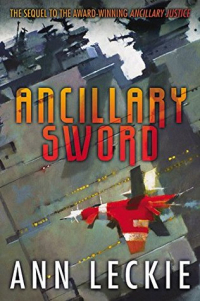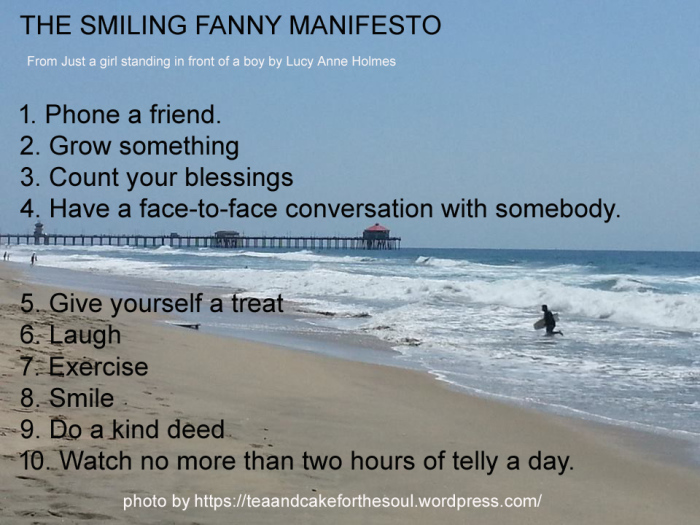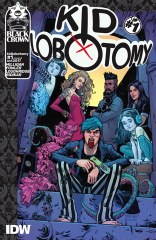 Ancillary Sword by Ann Leckie
Ancillary Sword by Ann Leckie
Published October 7, 2014

Ancillary Sword is the second book in Ann Leckie’s Imperial Radch trilogy, and I can safety say that this series is like nothing I’ve ever read before. Her first book, Ancillary Justice, won just about every major science-fiction award when it debuted in 2014, and it was on my tbr for about as long before I finally dove into the series this year. The series is every bit as unique and worthy of praise as I had hoped. The world-building is terrific, there are characters I care deeply about, and the author’s sharp social commentary on gender, class, and imperialism had me bookmarking quotes along the way that particularly resonated with me.
Written in the first person, our narrator is Breq, a music-loving millenia old spaceship AI inhabiting the body of a single human “ancillary”. Formerly the spaceship Justice of Toren, she had thousands of bodies (ancillaries) at her disposal and was connected at all times, able to see through the eyes of any of these ancillaries and to monitor the health and emotions of her human officers as well. Twenty years ago the Lord of the Radch destroyed Justice of Toren and her crew, leaving the former spaceship isolated in a single human body. Breq’s sense of loss and isolation from not having ancillaries lingers throughout both books in the series that I’ve read. Even as she recognizes what ancillaries are (reanimated corpse soldiers linked by artificial intelligence), she misses that connection and being once more on board a ship brings back regret that it will never be what she really wants, but she will have to make do with what she has.
While Ancillary Justice dealt with Breq’s quest for vengeance against the Lord of the Radch for the destruction of her ship and crew, Ancillary Sword is a much quieter sequel, that focuses more on character growth and on a critique of society, and is no less poignant for it. As Fleet Captain, Breq leads the ship Mercy of Kalr on a diplomatic mission to Athoek, a planet known for its tea (a necessity of Radch civilization), but although the planet was annexed hundreds of years ago and everyone should now be “civilized”, there is unrest and the enemy alien Presger might have taken an interest in what’s going on.
The world-building in this series is really exquisite. The Lord of the Radch has been annexing other worlds and adding them to the empire for roughly three thousand years, and Leckie’s Radchaaii have a strict emphasis on propriety in their behavior and think of races as “civilized” (annexed and submitting to the superior Radchaai ways) vs. uncivilized. I love the touches of culture we get throughout the book, from the Radch view of tea as civilizing, to their strict mourning customs and wearing of memorial tokens in memory of the deceased, to the idea of “clientage” a form of social relationship where clients offer their loyalty and services in return for financial support and prestige of their sponsor’s wealthy house.
The Radchaai are a race unconcerned with gender. Women and men dress and act similarly and their language, the predominant language of the empire, does not express gendered differences. Leckie makes the interesting choice to convey this gender neutrality through the default gendered pronouns of “she” and “her”. While the pronouns are initially jarring, I didn’t find it difficult to adapt, and was even shaken when, in this novel, the characters switch to another language for a time that does differentiate gender revealing that a minor character is male. The reader never does discover the genders of many main characters in the series.
As a female reader of SFF, I found using “she” as a default powerful, but I can also see how this choice in pronouns and fact that some characters are mis-gendered throughout the series could be triggering to trans or non-binary readers.
Leckie also excels at sharp social commentary. Much of Ancillary Sword is an exploration of privilege and power and challenging the status quo. From the moment she sets foot on Athoek, Breq tries to help out the victims of inequality and challenges the presiding ideas about class and what is respectable. Instead of taking rooms that fit a Fleet Captain, Breq sets up her household in the Undergarden, a place where legally no one is supposed to live and that is inhabited by the poor. She recognizes the inequality that workers on the tea plantations face and stands up for them, and she intervenes when a worker’s younger sibling is being taken advantage of by the daughter of the plantation owner, and has no recourse because the power imbalance is so great that he would lose his job or his wages for food if he did not submit to the sexual advances.
“You take what you want at the end of a gun, you murder and rape and steal, and you call it bringing civilization. And what is civilization, to you, but us being properly grateful to be murdered and raped and stolen from? You said you knew justice when you heard it. Well, what is your justice but you allowed to treat us as you like, and us condemned for even attempting to defend ourselves?”
At one point a non-Radchaai character surprises Breq with her view that one race on the planet’s problems would be remedied “if only they became better citizens’. Breq replies, “Just how good a citizen does one have to be in order to have water and air, and medical help?” This struck me as very relevant in the present day.
Another quote that struck me was this one, where Breq tries to explain to the System Administrator that she is not trying to see things from the perspective of those less privileged.
“These people are citizens…When they behave properly, you will say there is no problem. When they complain loudly, you will say they cause their own problems with their impropriety. And when they are driven to extremes, you say you will not reward such actions. What will it take for you to listen?”
I must also mention that Ancillary Sword includes my new favourite expletive, “you fish-witted fuck.” I hope I never have cause to use that one, but I do think it would be fun to say.
Ancillary Sword is a wonderful book, and though it was perhaps slower paced and less driven than Ancillary Justice, I actually enjoyed it more for its look at power and privilege and the inequality of empire. I would need another several hundred words to talk about how much I enjoyed these characters, from devoted recovering addict Seivarden to Lt. Tisarwat who spends the book in crisis, Kalr Five’s pride in her work and her dishes, the whimsical all too briefly featured Presger Translator Zeiat, Basnaaid the independent and measured sister of an important character from the first book, and Citizen Queter, whose rage at the injustice she and her brother face is keenly felt. And of course Breq, intelligent, keeping her cards close to her chest, and yet caring so much about her crew and about justice. I highly recommend the Imperial Radch series and I can’t wait to pick up the final volume in the series, Ancillary Mercy!
Advertisements Share this:




